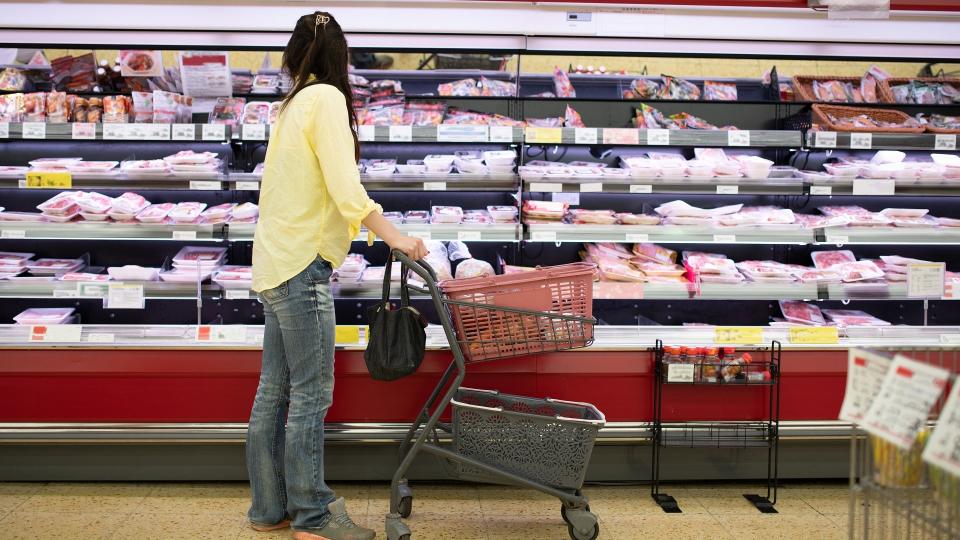What Is Price Gouging and Why Is It Illegal?

Unlike changes in the demand curve — like an increase in a product’s or substitute product’s price, or changes in consumer tastes, preferences and expectations — price gouging happens when retailers increase costs to unfair or exorbitant levels due to a lack of supply or a boost in demand, often after a natural disaster or other state of emergency.
See: 8 Purchases Retirees Almost Always Regret
Check Out: 5 Affordable Places To Retire Near the Beach
Many states have laws in place to prevent companies from gouging consumers, and running afoul of said laws often carries harsh civic or even criminal penalties.
State Statutes and Price Gouging
In the U.S., there are no federal laws against price gouging — and in many states, the practice is completely legal. However, most states have taken a hard stand against those profiteering during times of high demand or supply shock.
A full 37 states — plus the District of Columbia, Guam, Puerto Rico, American Samoa and the U.S. Virgin Islands — have statutes in place against what they feel are violations “of unfair or deceptive trade practices law,” according to the National Conference of State Legislatures.
States that do not carry price gouging statutes include Alaska, Arizona, Maryland, Minnesota, Montana, Nebraska, Nevada, New Hampshire, New Mexico, North Dakota, South Dakota, Washington and Wyoming.
With few exceptions, state statues cover abrupt price increases during an emergency or crisis situation and mainly apply to essential survival services or consumer products.
Some states, like Connecticut and Massachusetts, have provisions in statutes relating to fuel and petroleum products respectively, while in Maine, profiteering in rents is expressly identified and prohibited.
Elsewhere in the United States, the California Business & Professions Code §22449 protects price gouging on trusted services like immigration consultants, attorneys, notaries public and organizations accredited by the U.S. Board of Immigration Appeals. In New York, past investigations concerning alleged price gouging of milk found violations at food markets contrary to N.Y. General Business Law, according to the New York State Office of the Attorney General.
In America Samoa, the law on price gouging prohibits unjustified price increases of over 10% on specified consumer food items or goods, emergency supplies, medical supplies, building materials, housing, other goods or services necessary in an emergency, repair or reconstruction services — or any other services used in emergency cleanup, per the unincorporated territory’s Department of Legal Affairs site.
Federal Legislation and Price Gouging
According to The National Law Review, the public health emergency brought upon by the COVID-19 pandemic has prompted the federal government to address price gouging through proposed legislation in 2022.
In May, Sen. Elizabeth Warren (D-MA), along with Sen. Tammy Baldwin (D-WI) and Rep. Jan Schakowsky (D-IL), introduced the Price Gouging Prevention Act. Said act, if signed into law, would prohibit the practice of price gouging during any abnormal market disruption — like the pandemic — “by authorizing the Federal Trade Commission (FTC) and state attorney’s general to enforce a federal ban against unconscionably excessive price increases, regardless of a seller’s position in a supply chain,” per a statement on Warren’s site.
Live Richer Podcast: Trading Secrets – From Crypto to Congress – With WallStreetBets
Additionally, also in May, Rep. Katie Porter (D-CA) introduced the Consumer Fuel Price Gouging Prevention Act, per The National Law Review. The act is aimed at protecting consumers from price gouging regarding consumer fuels. Prohibiting “unconscionably excessive” prices of consumer fuels like gasoline and home energy fuel, the act would enable the president to enforce price controls by energy emergency proclamation.
Inflation and Price Gouging
Partially due to the increased attention being given to price gouging at the federal level, many critics are targeting companies taking advantage of consumers during this period of high inflation and overall economic turmoil.
“Greedflation” is the trendy term given to this phenomena by economists attempting to explain the motives of corporations inflating prices and increasing profits under the guise of necessity due to inflation. “It implies that greed is the underlying reason behind a rise in the cost of goods and services and suggests that the price increases aren’t justified by a legitimate need for a price increase, such as a rise in the cost of materials or labor,” explains AskMoney’s Tamila McDonald.
Greedflation is said to occur if greed is the sole reason for excessive price increases. Otherwise, inflation is to blame. As The New York Times argued, it’s a multi-faceted circumstance where, although instances of “greedflation” are certainly happening, it is also being used as a tool to blame corporations and deflect criticism away from government’s role in fueling inflation.
Find Out: 10 Reasons You Should Claim Social Security Early
Read: Stimulus Updates To Know for Summer 2022
In the NYT article, Jason Furman, an economist who served under Barack Obama, claimed that a contemporary focus on price gouging and greedflation is being used as a distraction from the real causes and solutions of the country’s current high rate of inflation.
More From GOBankingRates
States Whose Economies Are Failing vs. States Whose Economies Are Thriving
Check Out Readers' Favorite Small Businesses in Our 2022 Small Business Spotlight
Looking To Diversify in a Bear Market? Consider These Alternative Investments
This article originally appeared on GOBankingRates.com: What Is Price Gouging and Why Is It Illegal?
